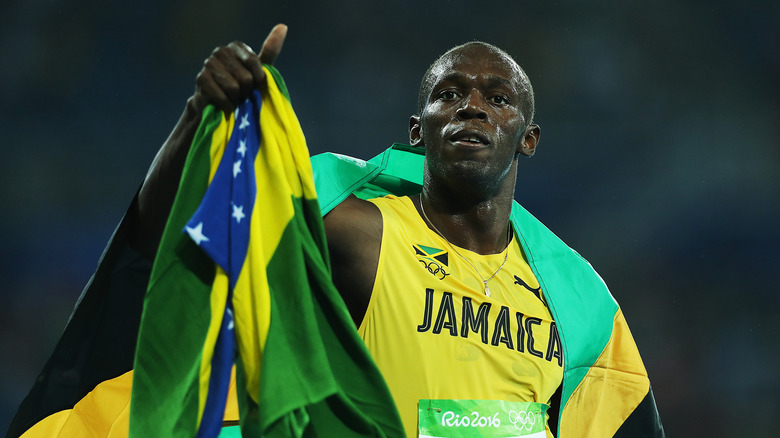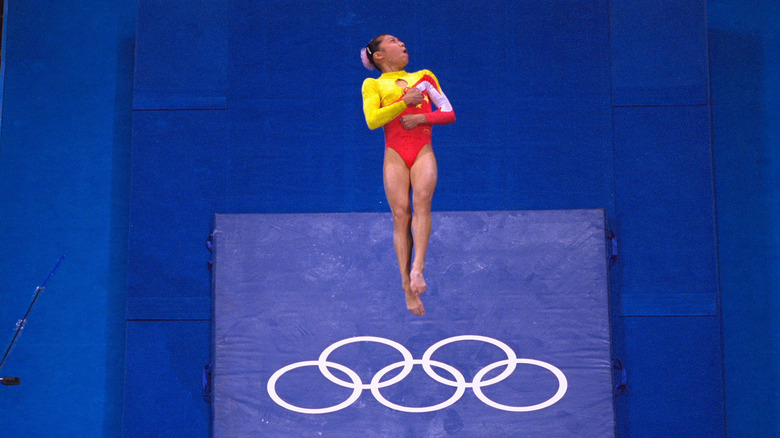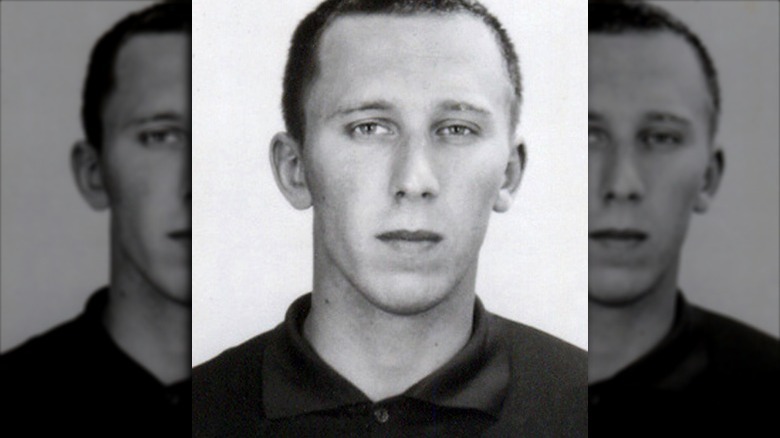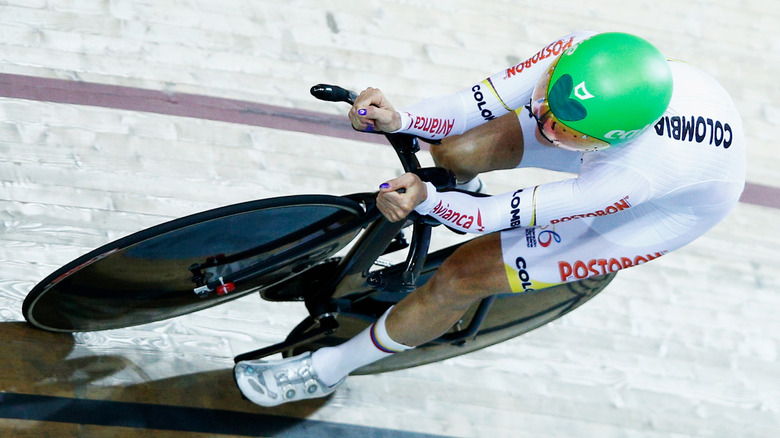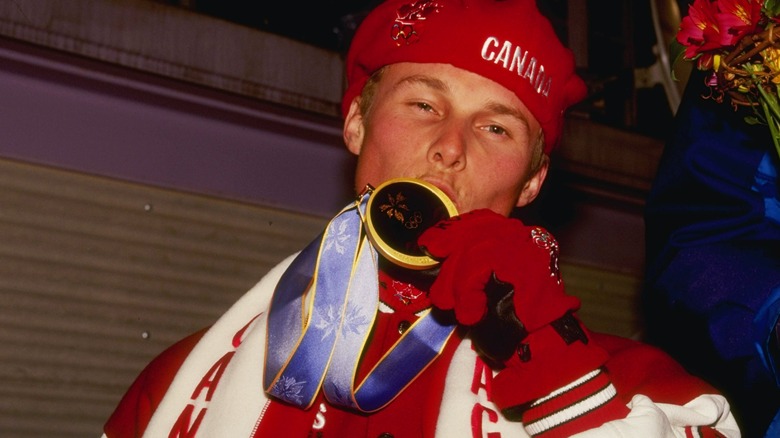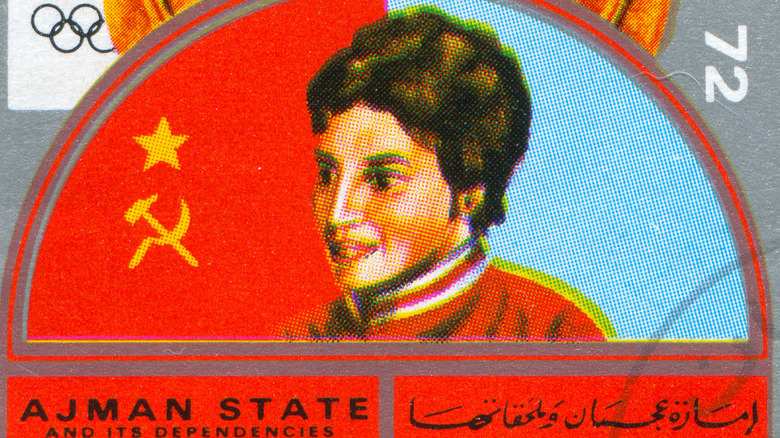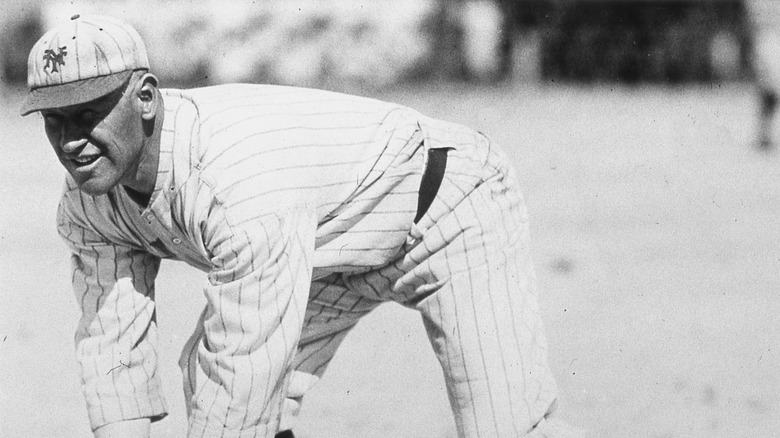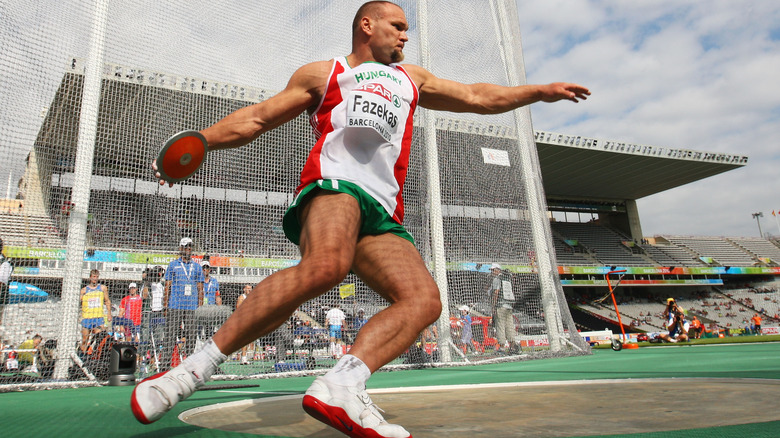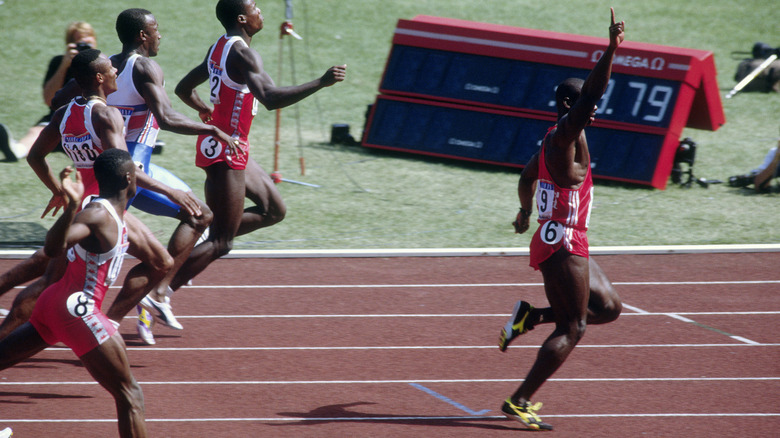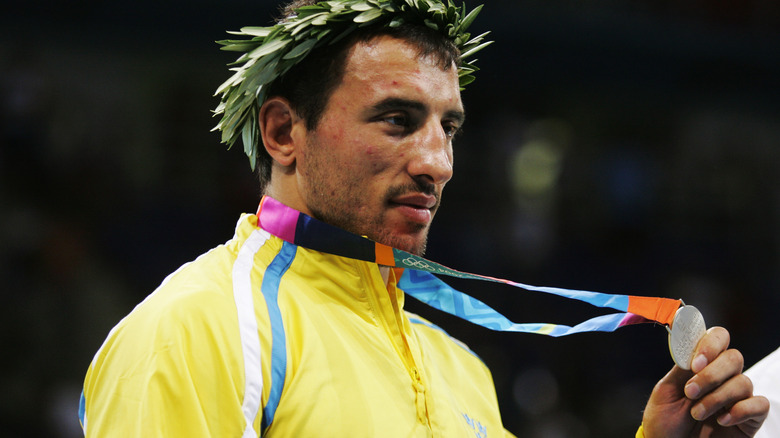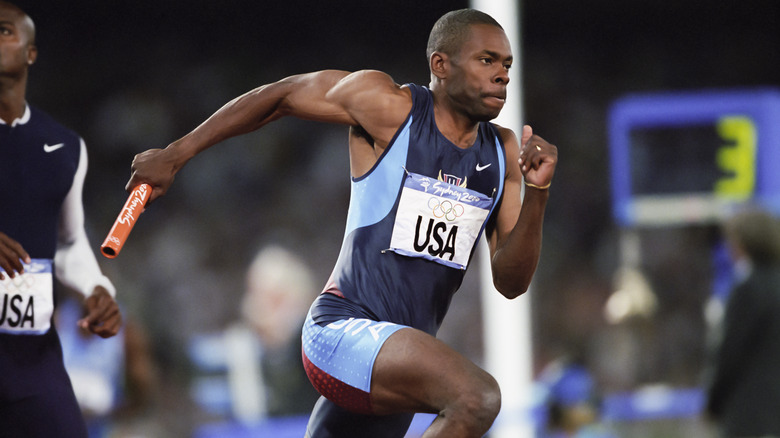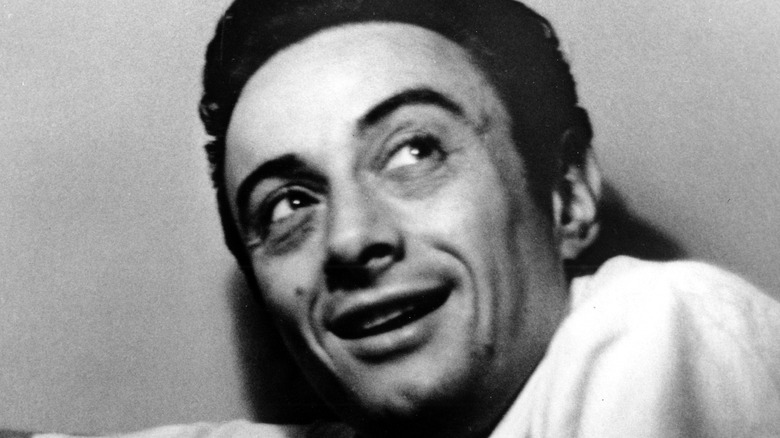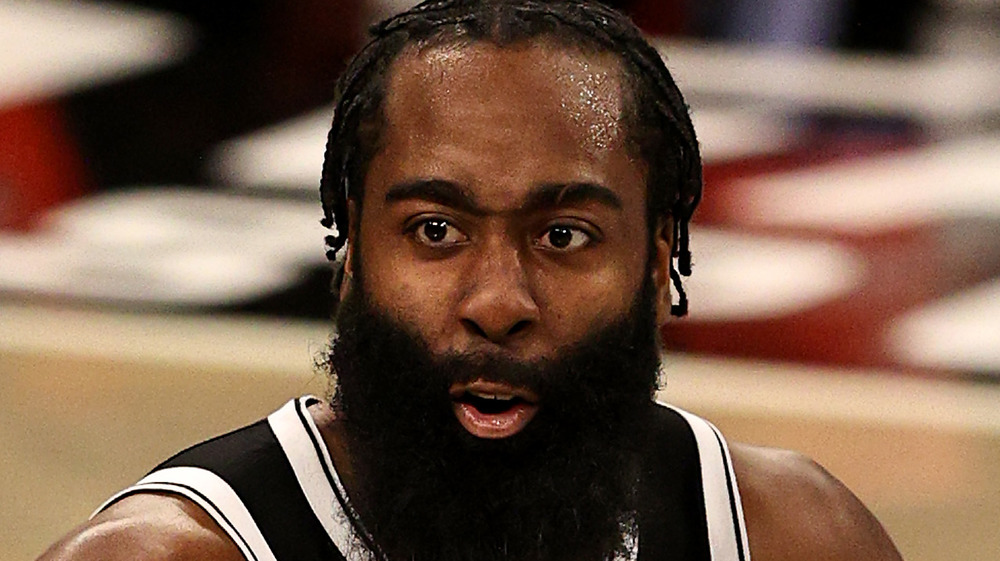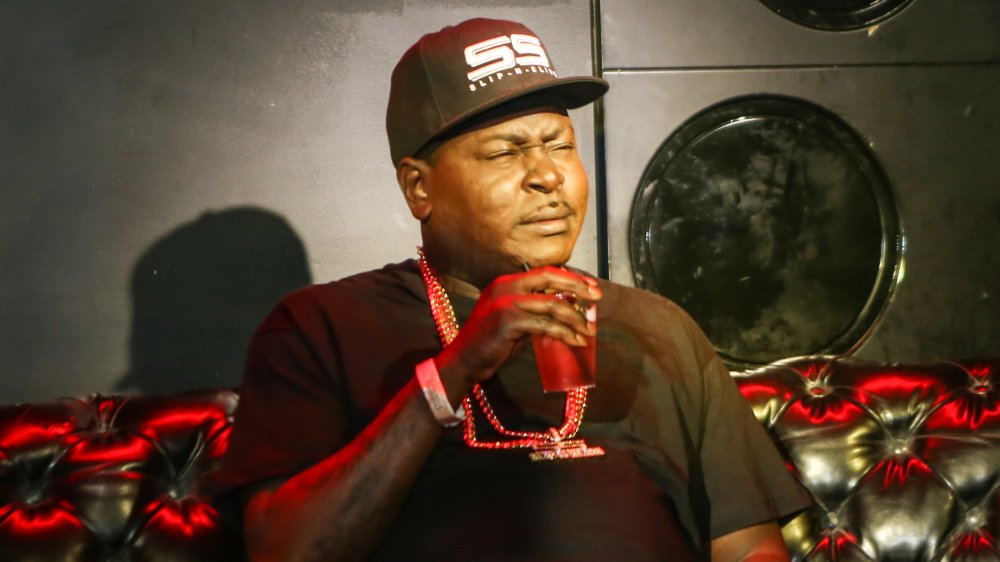
Crazy Stories Of Athletes Who Were Stripped Of Their Olympic Medals
For most athletes who compete in the Olympics, it’s a moment that’s the culmination of a lifetime of dedication and training. It truly is a pursuit that only a handful are driven to, and to take that world stage means you’re fueled by a passion that not too many people have. It’s not easy being an Olympian, after all: You’re probably not going to get rich, your training might even bankrupt you, and there’s a good chance you’ll have to sacrifice things like an education and even your right to speak your mind in public. Also, there’s a 100% chance you’ll have to sacrifice things like cheeseburgers and late-night Taco Bell runs, and that’s dedication.
That makes it a huge deal when winners are stripped of their medals. They’ve worked years and years to get to that podium, and while the knee-jerk reaction might be to think they’ve been caught doping, that’s not always the case. (Although, spoiler alert — that’s often the case.)
In fact, there’s a ton of crazy stories of Olympians who have had their medals taken away, and some have had victory snatched from their grasp amid shocking circumstances.
Give 'em back? Nah, I think I'll keep it
In 2017, NBC Sports reported that 18 Russian medalists from the 2008 and 2012 Olympics had been disqualified for their association with doping scandals, and an additional 10 had their medals stripped because they had been on a team where at least one of the members had been caught doping. They were told to return their medals to the International Olympic Committee, and promptly said, “Nope.”
Some said more than that: Maxim Dyldin was disqualified from the relay and ordered to give his bronze medal back, to which he replied, “I’ve got the medal at home. Let them try to take it.” (AP says he was later banned for four years for refusing to be tested for doping.) That was in February, and by August, there were still clear holdouts. Reuters reported (via Huffington Post) that among them was sprinter Tatyana Firova (pictured), who explained: “I don’t want to return my medals because I think no one would have deserved them more.” That was, of course, in spite of testing positive for steroid use.
When the media looked at whether or not the IOC could force them to give back the medals, the answer from experts and historians was pretty much, “Dunno. Maybe? Probably not?” The IOC, meanwhile, has been a bit mum on what they’ve actually gotten back.
How far is too far to take zero-tolerance?
Romanian gymnast Andreea Raducan won a gold at the 2000 Olympics for the individual all-around competition, and then it was almost immediately taken away. The reason was doping, but according to The New York Times, it’s complicated. The then-16-year-old Raducan tested positive for pseudoephedrine, which — while being on the IOC’s official list of banned substances — is probably also in the medicine cabinets of most homes. It’s in over-the-counter cold medicine, and that’s exactly what she’d taken. Not only had she taken it, but it was her trainer who gave her the meds, to fight off flu symptoms.
She appealed the decision. While the International Court of Arbitration for Sport agreed that she hadn’t gained any advantage from taking the medicine, they also argued that anti-doping rules “must be enforced without compromise.” Not only did they refuse to return her medal and title, but her doctor, Ioachim Oana, was banned from the remainder of the games, as well as the next two games. Raducan later said, “I am disappointed. It’s not for me to judge the decision, but I am convinced and my heart is at peace that I did everything right and competed fairly.”
In 2020, a film called “The Golden Girl” followed Raducan’s journey for redemption. Having gone on to become a journalist and sports announcer, she says that having all she’d worked for taken away because of a technicality means there’s no chance of fairness with the IOC.
Should he have added one more to the collection?
Saying Usain Bolt is fast is the understatement of the year, and he famously has a ton of Olympic medals to prove it. But he’ll always know that he should have had one more. In 2008, his team took the gold in the 4×100-meter relay… and then, says The New York Times, they had to give it right back. At first, everything looked on the up-and-up, but when Bolt’s teammate Nesta Carter was retested for doping, and the results came back positive for one of the stimulants on the IOC’s no-fly list.
The retesting was done after officials realized just how far Russia’s doping scandal reached, and the Jamaican relay team sort of got caught in the fallout. Weirdly, retests aren’t entirely unheard of, and urine samples from athletes are often saved in case of the development of new, more precise technologies that can be used to detect illicit substances.
Bolt was, predictably, not thrilled about the whole team losing their medals because of one person. He said (via NBC Sports), “I’m not happy about it, but it’s just one of those things that happen in life, but I can’t allow that to deter me from my focus this season, so I am focused, but I am not pleased about the situation. … This hasn’t changed what I have done throughout my career.”
Two years is a long time to wait
It wasn’t until 2010 that Chinese gymnast Dong Fangxiao had the bronze medal she’d won in the 2000 Sydney Olympics taken away, and according to The Wall Street Journal, it’s entirely possible that it was only because of her own oopsie.
When registering for the 2000 Olympics, they note that she had applied with a birth date of Jan. 20, 1983. That would have made her 17 years old at the time of the competition, a year over the minimum age requirement of 16. But when the 2008 Olympics rolled around, she listed her birth date as Jan. 23, 1986. That meant at the time she competed in 2000, she had only been 14 years old — well under the minimum age requirement.
Her bronze medal was stripped and given to the U.S., but the evidence suggests that hers isn’t the only such story. There were further investigations into the Chinese women’s gymnastics teams in 2008, and although those girls were ultimately found to be old enough to compete, U.S.A. Gymnastics made it very clear that they doubted the verdict and condemned the pressure put on pre-teen girls to not only compete, but to lie about their age to do so.
A different kind of doping
Cian O’Connor was one of the youngest showjumpers in Ireland at the time he rode Waterford Crystal — who was owned by one of the richest men in the country — at the Athens Olympics in 2004. They took the gold medal, but they didn’t quite take it home when tests on Waterford Crystal came back positive for two substances commonly used in humans as antipsychotics.
O’Connor and his team said that yes, they’d given the horse the drugs as a sedative to keep him calm while he had been recovering from an injury, and it was when they appealed for a retest that things got really weird. That, says The Irish Times, is when someone intercepted the sample being sent for retesting, signed for it, then vanished.
Things got even more complicated when there was a break-in at the Irish Equestrian Federation, and some uncomfortable files were released to the public. Namely, it was proof that another of O’Connor’s horses had also tested positive for doping. That kicked off a whole media frenzy, and ultimately, he went through with his appeal even though there could be no retest. While the committee agreed that yes, they had given the horse the drugs in enough time that they should have been cleared out of his system by the Olympics, the bottom line was, they hadn’t. And that meant the medal was forfeit.
One for the road? Not so fast
When it comes to iconic years in Olympics history, 1968 is definitely up there. Not only did the world see things like East and West Germany competing as separate nations for the first time, but who could forget that iconic protest by John Carlos and Tommie Smith? SBNation says it was also a year for another first: the first athlete was stripped of his medal for doping. And given that it was the 60s and drug use was, well, pretty wild, man, the disgraced athlete’s drug seems pretty tame.
Hans-Gunnar Liljenwall was representing Sweden in the pentathlon and was coming up on the chance to make up for his performance — or lack thereof — in the 1964 Olympics. He galloped to the front of the pack with the riding event, hacked and slashed his way through the fencing, and was suddenly face-to-face with the shooting event.
The night before the event, he drank just two beers in an attempt to relax from the overwhelming pressure. He finished the shooting portion of the event, and when everything wrapped up, the Swedish athletes took bronze. And then, his drug test came back: Not only was he stripped of his medal, but his entire team lost their medals over a few evening beers. In 2018, alcohol was removed from the list of banned substances.
If you get away with it once…
Here’s something of a complicated tale, and it starts with the 2004 Athens Olympics. That’s when the International Olympic Committee handed down sanctions to Colombian cyclist Maria Luisa Calle Williams. Williams had a drug test come back positive for a banned substance called Heptaminol, and as a result, she was stripped of the bronze medal she had won in the women’s Points Race.
That’s by no means the end of the story, and Williams wholeheartedly denied ever taking any such substance. The New York Times later reported that Calle Williams had appealed the ruling, stating that she had taken some headache medication that had resulted in a false positive for the banned substance. The Court of Arbitration for Sport ultimately agreed, and the bronze — which had been given to U.S. cyclist Erin Mirabella — was taken away from her and returned. (On a side note, Mirabella hadn’t even been aware of the fact that Calle Williams was contesting the whole thing, and only found out that she had lost the bronze through a friend who’d read it online. Ouch.)
Now, the footnote to the whole saga. In 2015, Calle was competing at Toronto’s Pan American Games when her drug test came back positive for another prohibited substance. Cycling News said she was given a four-year ban, and the Colombian Cycling Federation announced “the sad end of a career with successes and joys.”
It's just a little weed, man!
The very first Olympic medal for snowboarding was awarded at the 1998 Winter Olympics in Nagano, and then it was promptly removed when gold medalist Ross Rebagliati’s drug test came back positive for marijuana. According to The Washington Post, Rebagliati said that he personally hadn’t smoked weed since April of the previous year, but when friends had a pre-Olympics, going-away party for him, some of them had been smoking. He was in the room, and that’s how it had gotten into his system.
When it came time for the IOC to vote on whether he’d be handed a disqualification or just a slap on the wrist, it was pretty close. At the time, there were no specific limits on marijuana use, and while it wasn’t listed as “performance enhancing,” it was controversial because it was said to be used to calm nerves. The ban actually didn’t last long and was overturned before he even had a chance to give the medal back. (The delay was partially because he ended up in a Japanese jail on suspicion of bringing pot into the country, says The New York Times.) But still, that’s not the end of the story.
Rebagliati later said, “Cannabis … was seen as being for losers and lazy stoners. … I became a source of entertainment, a joke.” He went on to embrace it though: With Canada’s legalization of weed, he has since launched his own “cannabis lifestyle brand,” called Legacy.
It doesn't take much to lose a medal
When it comes to cross-country skiing, the Soviet Union’s Galina Kulakova was one of the best. She participated and won medals in the Olympics in 1968, 1972, 1976, and 1980, and that was all in between setting records around the world. She walked away from the Olympics with eight medals (including four gold) but was hit with a somewhat bizarre doping charge in 1976.
According to The New York Times, Kulakova was hit with a nasty bout of the flu that had been going around. The night before competing in the 5km race, she used some nasal spray to try to relieve some of the symptoms. It would lead to a permanent stain on her career: A bronze medal stripped for doping with ephedrine.
Kulakova maintained that she hadn’t done anything wrong and had no idea that using nasal spray was going to result in a positive drug test, and the IOC seemed to agree… sort of. While they issued her a formal warning and refused to give her medal back, she was permitted to compete in other events, and wasn’t banned or suspended.
Stripped of his medals over $25
The Smithsonian calls Jim Thorpe “the greatest American Olympian of all time,” but it’s not a sentiment that’s reflected in any official records. Why? It’s a weird story. Thorpe — who was a Sac and Fox Native American who grew up hunting, riding, and working in what was the Oklahoma Territory — famously broke a high school high-jump record when he hopped over a bar set above his own height in work clothes, and when it came to the Olympics, he dominated in both the decathlon and pentathlon. That includes events like the mile run — which, incidentally, he won wearing unmatched shoes and after competing in nine other events in less than 48 hours.
Then, in 1912 — six months after the competition — the IOC stripped Thorpe of his medals. Why? A few years prior, he had spent a season as a minor-league ball player. The Olympics were only for amateurs, and that meant the $25 he’d made (which is about $700 adjusted for inflation), made him ineligible. In spite of rules stating that Olympic medals could only be challenged for 30 days after competition, his medals were revoked.
In spite of a massive movement to see the records change and the medals go back to Thorpe, The New York Times says that things still aren’t right. In 1982, the IOC awarded him posthumous gold medals that came with a massive catch: The medals were his, but the official records and results of the Olympics he absolutely owned weren’t going to be changed.
It turns out that it's super important to read labels
So, let’s say you’re traveling abroad, you’re feeling kind of sick, so grab some Vicks nasal spray. It’s an easy decision that’s definitely not going to get anyone in trouble, right? That’s what the British skier Alain Baxter thought when he competed in the 2002 Olympics in Salt Lake City. According to The Telegraph, his bronze in the slalom made him the only Brit to place in the top three in any alpine skiing event. It was short-lived, though, when he tested positive for methamphetamine.
He was shocked, but a closer look at what he’d bought in a U.S. store made it pretty clear what had happened. In the U.K., Vicks nasal inhalers contain Siberian pine oil, camphor, and menthol as their active ingredients. In the U.S., however, the active ingredient is something called Levmetamfetamine (via The Guardian). He’d picked up an inhaler thinking it was the same completely inoffensive thing he was used to, but he found out the hard way that wasn’t the case at all.
Baxter appealed, and while the Court of Arbitration for Sport found him a “sincere and honest man who did not intend to obtain a competitive advantage in the race,” they still ruled against him and refused to give his medal back. Baxter later said (via The Guardian) that he was relieved to have at least been cleared of cheating, and added that he hoped the rules would eventually change.
How far the mighty have fallen
Lance Armstrong’s story is the stuff of legend. He was only 25 when he was diagnosed with testicular cancer, and post-treatment he returned to the cycling world to take title after title. It wasn’t long, however, before rumors of doping started circulating. According to CNN, Armstrong denied it until 2013, when he came clean during an interview with Oprah. The IOC immediately stripped Armstrong of his bronze medal from the 2000 Sydney Olympics, and it was almost as fast as the International Cycling Union took away his Tour de France honors, too (via the BBC).
It turned out that was just the beginning of the fall, and things only got worse when the United States Anti-Doping Agency released findings (via the CBC) that not only had Armstrong been taking a Molotov cocktail of performance-enhancing drugs, but he’d been “ruthlessly” pressuring his teammates to do the same. The report included the insane lengths he had gone to, including things like turning hotel rooms into blood transfusion centers. A total of 26 people — including 11 of his former teammates — testified, and it led to the unfolding of a scandal that the USADA called “the most sophisticated, personalized, and successful doping program that sport has ever seen.”
After Armstrong was stripped of his medal, NPR says it took him eight months to return it.
A different kind of performance anxiety
The 2004 Athens Olympics set a record of their own: According to The Los Angeles Times, they were the first Olympic games where more than one track and field competitor lost a medal for doping. But here’s the thing: Hungarian discus-thrower Robert Fazekas didn’t actually test positive for drugs.
He wasn’t tested at all, because he struggled with giving a urine sample. Why? Because IOC rules dictate it’s something that has to be done in front of witnesses. That’s something that not many places include in the list of things you’ll have to go through to compete in the Olympics.
The IOC hinted at the fact they firmly believed that Fazekas couldn’t fill the cup in front of onlookers because he knew he was going to fail and wanted to carry in a clean sample to submit instead. For his first sample, he produced just a third of the required amount, and when it came time to give a second, he outright refused. His team said he “was a deeply religious person who has always had difficulty to produce a sufficient quantity of urine in front of sample collectors,” and in the end, he was disqualified. His gold medal went to the next in line.
'A gross injustice'
Rick DeMont, says Swimming World, was just 16 years old when he headed to the 1972 Olympics in Munich, where he soundly won the 400-meter freestyle. But, when he failed a drug test, he wasn’t permitted to compete in the event he’d broken a world record in, the 1500-meter (via The New York Times). The U.S. swim coach called the events that unfolded “a gross injustice” in which “DeMont was robbed.”
So, what happened? When DeMont went through the standard procedure meeting with officials from the U.S. Olympic Committee, he had to — of course — fill out a ton of paperwork. In it, he specifically included information on his asthma, and what he used to treat it. Those were things like Sudafed and Actifed, and in spite of fully disclosing the information — and having been taking the medication under the supervision of doctors since he was a child — he tested positive for ephedrine, and lost his gold medal.
DeMont had suffered several severe asthma attacks in the day leading up to the race, which explained why the substance had been in his system. He and his coach argued that since the officials had all the information readily available to them, he absolutely shouldn’t have the medal removed. DeMont has continued to petition to have his gold reinstated, but according to AP, he’s been consistently denied by the IOC, who claims no disclosures were made and the dose was too high to be explained by asthma medication.
Never say never
A book published in 2012 called the men’s 100-meter race at the 1988 Olympics the “dirtiest race in history,” because out of the eight finalists, six would see their careers later tarnished by doping scandals. For one — gold medal winner Ben Johnson — it didn’t take long at all. After Johnson won, he took part in a press conference where, in hindsight, he probably shouldn’t have declared (via CNN): “this world record will last 50 years, maybe 100 … A gold medal — that’s something no one can take away from you.” It turned out that when your drug test comes back positive for steroid use, they absolutely can take that gold medal away — and they did.
Johnson, it turned out, had been using steroids for seven years by the time he competed. His trainer had started him on them, saying that everyone was using, and it just leveled the playing field. It was so rampant that the area outside of the practice field at the 1987 World Championships was described as “a drugs den, full of needles and syringes,” and it’s pretty shocking that at the time, most of the IOC was kind of “eh” about it.
Even more shocking has been Johnson’s beliefs about the whole thing, which could be summed up with the idea that it’s not a big deal. He’s said: “Regardless what the IOC think, it’s definitely the best race ever run… You only cheat if no one else was not doing it.”
Sportsmanship is the name of the game
Several Olympians have had their medals stripped because of poor sportsmanship, and let’s start with Unified Team weightlifter Ibragim Samadov. During the 1992 competition, he had officially tied with the other Polish and Greek athletes. However, since he weighed just a tenth of a pound more than they did, he was deemed to have an advantage and was given the bronze. When it came time for them to head to the podium, Samadov threw his medal on the ground and stormed off.
In spite of a later apology, the medal was stripped and the International Weightlifting Federation explained (via The New York Times): “He did not respect the International Olympic Committee, the spirit of the Games, his colleagues, the anthems, the flags. He did this in front of 4,000 people and a television audience of billions.”
Then, in 2008, Ara Abrahamian (pictured, in 2004) tossed his bronze aside after placing third for Sweden. He made it very clear how unhappy he was, saying (via The Guardian): “I don’t care about this medal. I wanted gold. … I consider this Olympics a failure.” Abrahamian condemned his placement at third as “totally unjustified,” and both he and his coach claimed “politics” had heavily influenced the judges’ decision. He announced his retirement from wrestling at the same time, but the IOC still included a ban with the removal of his medal (via Reuters).
When tragedy spirals
By the time Antonio Pettigrew was stripped of his Olympic medal, The Guardian says that his career was already over. That didn’t take away the shame, though, and he became embroiled in a massive scandal — in spite of the fact that he didn’t have a single positive drug test on his record.
Pettigrew’s coach was Trevor Graham, and in 2008, Graham found himself in court over accusations regarding some very unsportsmanlike conduct. Pettigrew was one of the athletes subpoenaed to testify and admitted that he had been taking human growth hormone drugs (among others) on Graham’s instructions. The time frame he gave was 1997 to 2001, and that led to the removal of all his titles during that period — including, says the IOC, a gold medal in the 4×400 relay in 2000’s Sydney Olympics.
He wasn’t the only one who had his medal taken away, and the admission nullified the results for the rest of his team as well — but it’s also worth noting that many of them had already been sanctioned for other doping instances, but not in 2000. Pettigrew later said (via The New York Times): “I want to play a role in teaching people, especially young athletes, to know that the negatives far, far outweigh the benefits these substances may give you.”
Two years later, Pettigrew’s body was discovered in his car. ESPN says that his death was ruled a suicide.
If you or anyone you know is having suicidal thoughts, please call the National Suicide Prevention Lifeline at 1-800-273-TALK (8255).

The Truth About The Woman Who Discovered Earth's Core

The Best Places To Travel During The Winter

Why Mikhail Kalashnikov Regrets Inventing The AK-47

How Nicolaus Copernicus Became A Doctor Without Getting A Degree

How The Brazen Bull Became One History's Darkest Forms Of Torture

What Are The 4 Cardinal Virtues And What Do They Mean?

Snails Helped Make The Phoenicians Rich. Here's How

Why The Zodiac Killer Once Left A Note For Police On A Car Door

These Are The Only Countries With Official National Sports

How Much It Really Cost For Grace Kelly To Become A Princess


